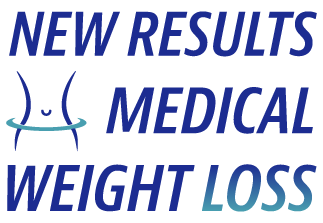Have You Stopped Losing Weight With Low-Carb Diets?
Here Are Some Possible Reasons
Diets that focus on appropriate amounts on protein and fats, and reduce carbohydrates are very effective…..today we can say it is a scientific fact. However, as with any diet, people sometimes stop losing before they reach their desired weight. This brief article will discuss some of the potential causes, and will look at some ways to avoid these “pitfalls.”
Weight loss isn’t a “linear process.” In other words, if you weigh yourself every day, there will be quite a bit of fluctuation from one day to the next. Sometimes our weight goes down, and sometimes it goes up. This does not mean the diet isn’t working, as long as the general trend over time is going downwards. Many people experience a lot of weight loss in the first week or two of a low carb diet – much of this initial weight loss is often water. Weight loss will slow down fairly significantly after that initial phase. Of course, losing weight is not the same as losing fat. It is possible, especially for those who lift weights, that you are gaining muscle at the same time that you are losing fat. If you only use a scale (which we don’t recommend), you won’t know this is occurring. You can have your body fat percentage and muscle mass measured every 4-6 weeks, use a tape to measure waist circumference, and pay attention to how your clothes fit as your body changes.
Some people are more sensitive to carbohydrates than others. If you’re eating low-carb and your weight starts to plateau, then you may want to cut back even further on the carbs – typically under 50 grams of carbs per day, which means almost no fruit (at least for a couple of weeks – except maybe small amounts of berries). If you need to get really aggressive, going under 20 grams temporarily can work…just eat protein, healthy fats, and leafy green vegetables. This should be done for a limited amount of time (under 10 days as a general rule).
Being stressed out all of the time can also make it difficult to lose weight. Stress keeps the body in a state of “fight or flight” – which increases stress hormones like cortisol. Chronically elevated cortisol levels can increase your hunger and cravings for unhealthy foods. Try deep breathing, meditation and get regular exercise to help combat stress. Also, not getting enough quality sleep can affect our ability to lose weight.
Eating a low-carb diet doesn’t just mean lower your intake of carbohydrates. You have to replace those carbs with real, nutritious foods. Avoid too many processed low-carb products like “bars”, they are NOT real food, and too much of these may not be good for you! Stick to meats, fish, eggs, vegetables and good, healthy fats. Eat enough fat – if you cut back on carbs AND fat, you will be starving all of time and you won’t feel well! Nuts are real food, and are good for you. However, they are high in calories and if we consume too many nuts, it can reduce our weight loss. Lastly, don’t eat too much dairy, avoid too many artificial sweeteners, and get good exercise (weight lifting, interval training, and low intensity – like walking)!
